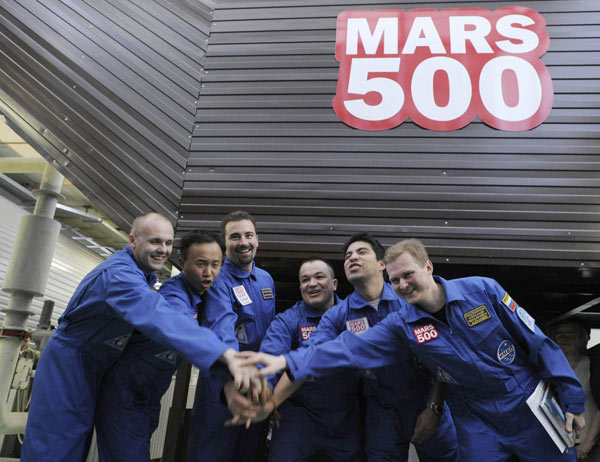Science and Health
Scientists begin 520-day Mars mission simulation
(Agencies)
Updated: 2010-06-04 06:51
 |
Large Medium Small |
The facility for the experiment is in western Moscow and includes living compartments the size of a bus connected with several other modules for experiments and exercise. A separate built-in imitator of the Red Planet's surface is also attached for a mock landing.
The mission director, cosmonaut Boris Morukov, said the experiment could be disrupted for medical or technical reasons or if some of the participants categorically demand it be stopped.
"Each crew member has the right to end the experiment and walk out," he said at a news conference. "We have had such negative experience in the past, and I hope it won't happen during this experiment."
A similar experiment in 1999-2000 at the same Moscow institute went awry when a Canadian woman complained of being forcibly kissed by a Russian team captain. She also said two Russian crew members had a fist fight that left blood splattered on the walls. Russian officials downplayed the incidents, attributing them to cultural gaps and stress.
Morukov said the organizers had considered some female candidates for the current experiment, but they hadn't been chosen for various reasons. "Selecting an all-man crew wasn't our goal," he said.
Other crew members include Russians Alexey Sitev, 38, Sukhrob Kamolov, 37, Alexander Smoleyevsky, 33 and Wang Yue, 26, from China. The organizers said each crew member will be paid about $97,000 for taking part in the experiment.
For Sitev, the mission captain, the experiment means separation from his wife just a few weeks after the two tied the knot. "It's difficult for me to part with my family, just as it is for any other person," he told journalists just before stepping in.
